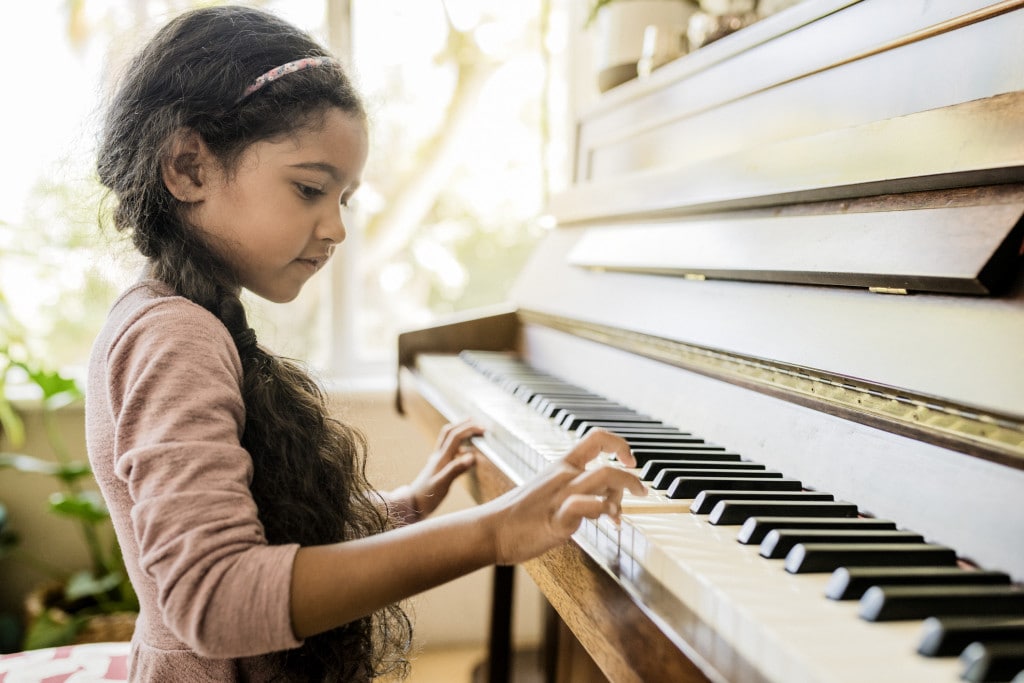Growing up as a gifted child in the 90s was not easy. There were not many programs available to foster my propensity for learning. And my peers couldn’t really engage with me in the ways I needed. I have one particular memory of my 2nd-grade teacher simply telling me to “read the Encyclopedia and write down what I learned” when I finished the assignments for class. Needless to say, I have a broad knowledge of state flowers and birds.
These days, there are myriad programs and activities available for children who identify as being gifted. Generally speaking, a gifted child is one who excels in one of 6 areas. These include general intelligence, specific academic abilities, creative ability, leadership ability, visual and performing arts ability, and/or psychomotor ability.1 Although your child may excel in one or more of these areas, parenting a gifted child comes with challenges.
Challenges of Raising a Gifted Child
Asynchronous Development
Asynchronous development is one of the biggest challenges associated with raising a gifted child. Imagine a 4-year-old child fluently reading Roald Dahl’s The Witches but not entirely understanding the concept of disguises and deceit. This phenomenon of academic skills exceeding socio-emotional understanding is common with gifted children. Parents may have a difficult time dealing with it.
You can help your child by creating an environment where they can engage in active questioning. It is also important to foster your child’s love of learning by seeking out activities and resources corresponding to their interest level.
Perfectionism and Anxiety
Because your gifted child can find success so easily in the area where they are gifted, it shouldn’t be surprising that they strive for this achievement level in all areas. But this can have a profound effect on mental health. In addition to the child’s pressure on themselves, teachers and caregivers may also hold them to a high standard. Of course, this can result in additional stress and anxiety.
When parents are aware of this characteristic in their children, they can help take some of the pressure off. Try to de-emphasize grades, model how to handle mistakes, and provide time limits for working on individual tasks. This may help their child avoid becoming overly involved in trying to make it perfect.
It is also helpful to guide your child in self-reflection. They need to assess what they have done well and what they want to work on before receiving an evaluation or grade from a teacher or coach.
Difficulty with Peer Relationships
As mentioned earlier, the gifted child often has thoughts and ideas beyond what their age-mates may be learning. This can be a struggle for your child. They will begin to see that those around them might not understand what they are interested in discussing. It may ultimately result in self-isolation.
To assist with developing friendships, it is important to recognize that friends may not necessarily be neighbors or in the same class. Instead, they may be friends that share a common interest. Parents can help their children seek out friends in extracurricular activities, such as sports, art classes, or gaming classes.
You Might Not Always Have the Answer
Perhaps one of the most challenging parts of raising a gifted child is realizing that you might not always have the answer. And that’s okay. This can be an excellent opportunity to show that you don’t have to know everything. After analyzing the facts, you can discuss any feelings that have come up. And because the gifted child likes to be challenged, this is an excellent opportunity to put those problem-solving efforts towards community-based endeavors, such as fundraising and advocacy.
The bottom line is just like any child; no two gifted children are alike. When parenting a gifted child, it is essential to identify your child’s strengths and difficulties and to seek out support when necessary. Ultimately, it will be up to you and your family to decide your child’s best educational setting. It may be a mainstream education, a specialized school for gifted and talented, or a gifted and talented program within a mainstream school. Check out the National Association of Gifted Children (here) for some great parent resources and support groups.































